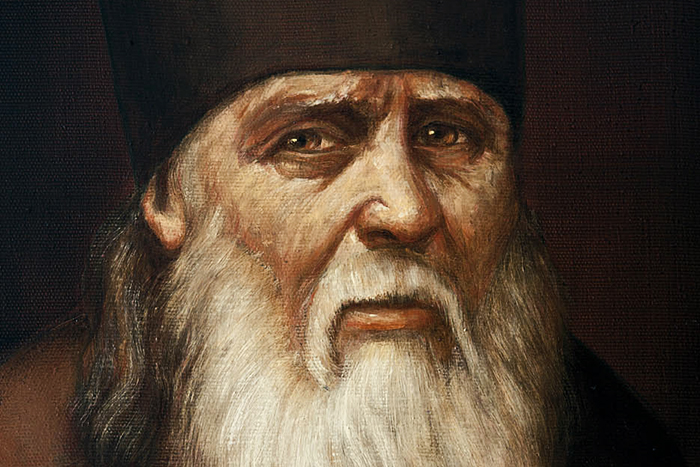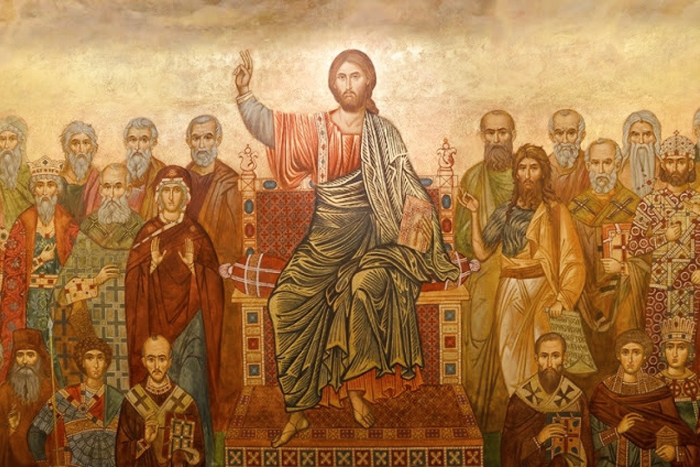
We can feel the correctness of our faith, but we cannot always explain it or prove it to an unbeliever, especially to someone who is, for some reason, irritated by our worldview. Reasonable questions of an atheist can sometimes bewilder even the most sincere Christian.
It often happens that one person’s sin causes suffering to innocent others hurting those who cannot be “held guilty” of his choice. Shouldn’t God prevent at least these consequences? Why does He allow suffering of the innocent?
God created the world as a harmonious unity. People are called to communicate with one another, with God and with angels. Human nature presumes that we form different relationships with one another, and this is God’s plan. Even in this fallen world we can serve our neighbour through love. Geniuses of art or science share their discoveries and creations with humanity; wizards help others to become wiser. We constantly come into contact with various manifestations of kindness and service. Farmers grow bread for us, bakers bake it, drivers deliver it to shops, janitors keep everything clean, etc.
Sin however can also exploit this interrelation. Evil people can spread false and harmful ideas, cheaters can cheat, and murderers can kill. Generally speaking, people can be unfair to one another in many ways. In a world where free beings are called to grow in wisdom showing love and care for their fellow man, they can also renounce love and wisdom and act out of hatred and competition.
Is it possible to stop this injustice? God will do that in the end. To accomplish that it will be necessary to somehow isolate those who do evil, remove them from the world or “separate the wicked from the righteous,” as the Scripture says. We call that event the Last Judgement, and we call the place of this isolation hell.
God could perform judgement at this very minute, but then all who have not responded to His call to repentance and faith will remain outside. God tolerates the wicked – even when they harm the innocent – because he expects them to repent.
But how can we be guilty of the Fall – an event that happened long before us and without our participation?
Fall from grace is not only an event that took place sometime in the past. The story described in the third chapter of Genesis is our experience too. We ourselves listen to the Serpent rather than God, and having sinned, we shift the responsibility to others, like Adam shifted it to Eve (and indirectly to God), and Eve to the tempting snake. We are not only heritors, but also active participants in the Fall.
Why cannot God change a person immediately when that person asks for God’s help (for example, it can be very difficult to get rid of bad habits)? Or doesn’t He want to?
Because a personality cannot be remodelled instantly, without being destroyed. This instant change would mean that God destroyed one person and simply created someone else in his place. The request “Lord, make me virtuous, but so that I do not take part in this” is a request “Lord, make me not me.”
A person’s inclinations, character, habits, preferences cannot be changed instantly. It is a long process of spiritual and moral growth, impossible without the will of that person himself.
It is the grace of God that completes that process but it happens from within, through personal will of the person. For example, my laziness or anger are my personality traits hence a part of me. It is something that only I can change by accepting God’s help with this.
Christians say that behind the entire world’s evil is the devil that “fights with God.” But how could he fight the almighty God? Why doesn’t God do away with the devil, then?
Indeed, behind the evil of the world is the first rebel – a powerful spirit that rebelled against God at the dawn of the universe and was followed by many other spirits that we call “demons”. Satan means adversary, and the devil (Greek diabolos) is a slanderer. Already in the third chapter of Genesis, he appears in the form of a serpent, inciting our ancestors to break the commandment of God. People sin of their own free will, but the devil acts as a deceiver, slanderer and instigator. For example, “the devil … put in the heart of Judas Iscariot to betray [Jesus]” (John 13: 2) or Ananias – to lie to the Holy Spirit (Acts 5: 3). It is Satan who deceives the nations (Rev 13: 4), it is he who is behind theomachies and the persecution of the Church. He acts in the world through people who are seduced and deceived by him.
Satan does not present a business card, and his suggestions reach us in the form of thoughts that come to us (in the Russian ascetic tradition, such demonic provocation is called “prilog”) or through other people.
However, each person is responsible for his own choice: he can either listen to the incitement of Satan or ignore it. He decides for himself to either willingly get carried away by sin or to resist it.
The devil is in no way an “anti-god” of any kind. He is just a creature, and his heavenly counterpart is by no means God, but the archangel Michael. The devil only exists because God allows him to exist.
The question from a famous novel “why God no kill the devil, so make him no more do wicked?”, which Friday puts to Robinson Crusoe, has several answers at once.
Firstly, the devil is not so much a person as a position – if you destroy this spirit, his place at the bottom of the hellish hierarchy will immediately be taken by one of his comrades in the fall. To exterminate all fallen beings who have ever opposed God would be to eradicate free will as such from creation.
Secondly, it would not be a victory. The victory that God wants to lead people to is victory through a voluntary break with Satan and reunion with God. If, for example, a child is stuck with a bad company, the worried father may shoot them, but will he return the child’s love and trust? The answer is, most likely, “no”. Freedom of a person means that he himself decides whom to rub shoulders with, even if this company is very bad. God fights with Satan not for resources or territories (that would make no sense since Satan is just a creation) but for the souls of people. Simple violence, as would be the case with plainly killing Satan, is ineffective here.
Thirdly, we can turn to one more representation of conflict between God and Satan that we find in the Scripture, one of a trial. God wins by asserting truth, not power.
People are honored to be active participants in the cosmic battle between the forces of good and evil – and this battle unfolds, first of all, in our souls.
As the book of Revelation says, “And the great dragon was cast out, the ancient serpent, called the devil and Satan, who deceived the whole universe, was cast out to earth, and his angels were cast out with him. And I heard a loud voice speaking in heaven: now has come salvation and the power and kingdom of our God and the authority of His Christ, because the accuser of our brethren, who slandered them before our God day and night, has been cast out. They overcame him by the blood of the Lamb and by the word of their testimony, and they did not love their lives to the death. ”- Rev 12: 9-11.
We see here not a victory won by violence, but a victory won by the blood (i. e. sacrificial death) of Jesus Christ, the martyrs faithful to death and their testimony about the truth.
As one ascetic said, we can glorify God through good things, when we accept them with thanksgiving, and through bad things, when we resolutely reject them.
The ability to say “no” to Satan’s claims is an opportunity for spiritual correction and growth. Metaphorically speaking, we are finding ourselves in the situation of the Garden of Eden, when the Serpent incites us to break the commandment, and we have every chance to say “no” to him.
Translated by The Catalogue of Good Deeds
Source: https://foma.ru/pochemu-byi-bogu-ne-ubit-dyavola.html




